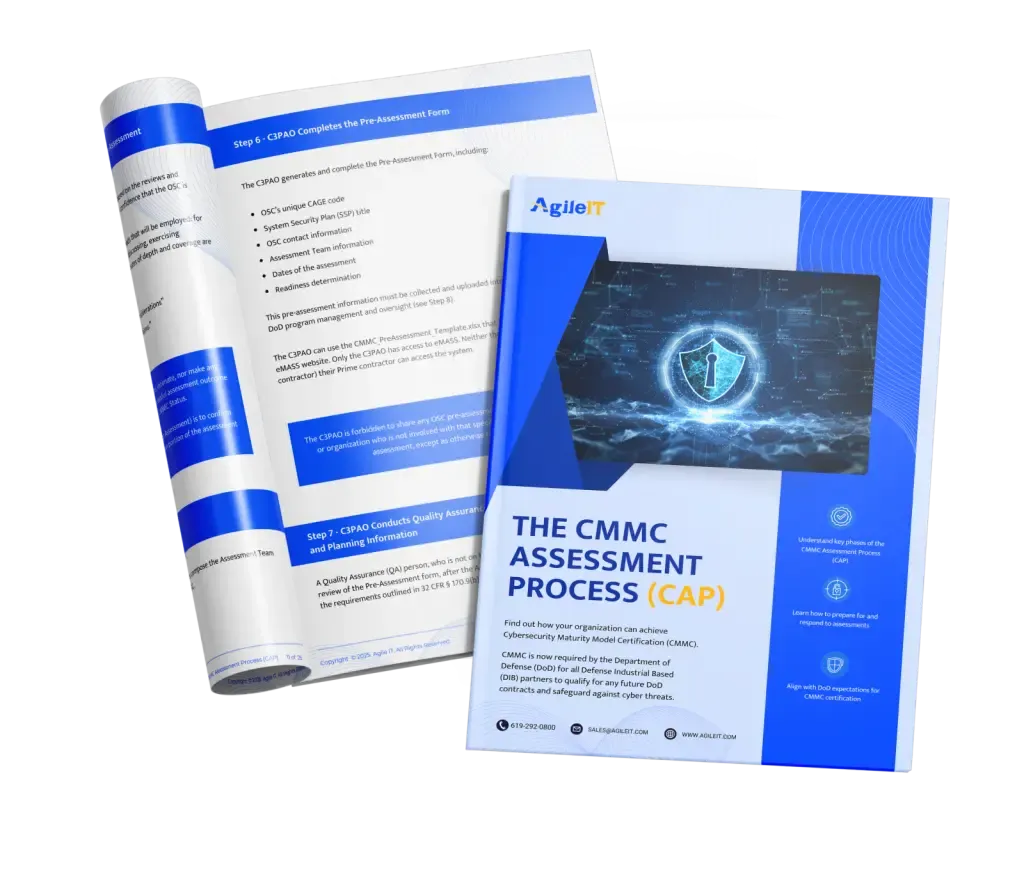Who Needs to Follow DoD Cybersecurity Requirements for CMMC Compliance
CMMC regulations apply to defense contractors, subcontractors, and suppliers handling DoD information. Find out who must comply and what certification level is required.

The United States Department of Defense (DoD) has strict regulations revolving around cybersecurity and how it is practiced by its contractors and subcontractors, and for good reason. The materials dealt with by those individuals are often highly sensitive and often pertain to matters of national security. As such, it was necessary to create a set of regulations that all who serve in the Defense Industrial Base can be expected to abide by. This unified framework is called the Cybersecurity Maturity Model Certification (CMMC) program.
Anyone who is a contractor or subcontractor with the federal government and who handles sensitive information, specifically Federal Contract Information (FCI) or Controlled Unclassified Information (CUI) is required to follow the CMMC program regulations. Let’s take a deeper look into precisely what this means.
What is the CMMC and Why is Compliance Necessary?
The CMMC regulations are not the first regulatory framework regarding cybersecurity around federal government work. Rather, other frameworks such as the NIST SP 800-171 and DFARS 252.204-7012 existed prior to the creation of the CMMC. However, the two are more closely aligned than what some may at first realize.
NIST SP 800-171 established a set of baseline security requirements for protecting Controlled Unclassified Information (CUI) in non-federal systems. These requirements became enforceable for Department of Defense contractors through DFARS 252.204-7012, which mandates the implementation of NIST SP 800-171 and requires reporting of cyber incidents within 72 hours. However, these frameworks relied heavily on self-attestation, meaning contractors were responsible for affirming their compliance without external validation.
The Cybersecurity Maturity Model Certification (CMMC) was developed to strengthen this system by adding a maturity model and verification component. It enhances the NIST SP 800-171 requirements by introducing multiple certification levels and, crucially, by requiring third-party assessments (at Levels 2 and 3) to verify that contractors are truly meeting the required cybersecurity practices. This move was intended to improve accountability, reduce risk, and ensure consistent implementation across the Defense Industrial Base (DIB).
Who Needs to Comply with CMMC Regulations?
A question that many have is who precisely must follow CMMC regulations as they are set out today. This is a completely reasonable and understandable concern for some to have. There are a variety of groups that must follow CMMC regulations in every action that they take. Among the group of people that must adhere to those regulations include the following:
- Defense Contractors and Prime Contractors – The companies that work directly with the Department of Defense to provide materials and/or personnel to aid in the defense of the country.
- Subcontractors in the DoD Supply Chain – Those who are contracted by the contractors to take care of some aspect of their work must also follow all of the rules of the CMMC regulations.
- Manufacturers and Suppliers of DoD Components – Any company that manufactures or provides supplies to the Department of Defense must also keep up with and adhere to CMMC regulations.
- IT & Cloud Service Providers for DoD Contracts – Even companies that provide the basic IT and cloud infrastructure that the DoD uses must also follow CMMC regulations.
- Consultants and Contractors Handling Sensitive Data – Any consultant or contractor that might come into possession of sensitive government data must also ensure that they are following CMMC regulations.
As you can see, this is a fairly significant list of people who are impacted by these regulations. The regulations should be taken seriously, and the work that each of these groups does should also be given its fair due. As you can see, this is a fairly significant list of people who are impacted by these regulations. The regulations should be taken seriously, and the work that each of these groups does should also be given its fair due.
CMMC Compliance Levels Based on Industry Roles
Not every contractor or subcontractor that works with the Department of Defense handle information of equal sensitivity, some manage data that could pose serious risks to national security. This is why there are three levels of CMMC compliance. Each level of compliance corresponds with the sensitivity of the data that one handles. A simple breakdown of what that tends to look like is as follows:
- CMMC Level 1 – This applies to companies and contractors that do business with the Department of Defense but who handle a limited amount of sensitive information. Their roles, while still important, aren’t directly involved in the handling of large quantities of sensitive information and thus require a lower level of regulation.
- CMMC Level 2 – More sensitive government data may be managed by larger companies or by those who have a more direct role in something that is particularly confidential or sensitive to government operations. Those who handle this type of information are subjected to CMMC Level 2 security and regulations.
- CMMC Level 3 – Organizations that deal with the most critical government operations and data will need to be subjected to the highest levels of regulations, and that is precisely what CMMC Level 3 regulations are.
The higher the level of CMMC regulations, the more serious the level of regulations. At the same time, there are far fewer organizations that are subject to Level 3 regulations than to Level 1 regulations. It is truly reserved for the absolute most sensitive of operations.
What Happens if I Don’t Comply with CMMC Regulations?
Not remaining in compliance with CMMC regulations is not something that you want to subject yourself to. There are several consequences that could come from making a choice like this. Among the things that contractors might face when they don’t follow the rules are:
- Increased Risk of a Cyberattack – You will immediately face an increased risk of a cyberattack or a breach of some kind. That can lead to significant damages to your organization and can ultimately expose sensitive records to those who never should have had access to them.
- Loss of Eligibility for DoD Contracts – Your organization might lose its opportunity to apply for and receive DoD contracts moving forward. That is a big deal because many organizations rely heavily on their contracts with the DoD.
- Legal Penalties – Depending on the specific nature of the circumstances, it is possible that you might even face legal penalties for your lack of diligence with staying within the rules of CMMC regulations.
Any or all of these situations can result from not following CMMC regulations. That’s why you will want to be certain to always play by the rules.
How to Reach CMMC Compliance
Take the following steps to reach the CMMC compliance that you need to have some peace of mind about your cybersecurity:
- Figure out which level of CMMC compliance is right for your business
- Review your current security situation to identify any security gaps
- Put NIST SP 800-171 standards in place to get started
- Take a third-party CMMC assessment if necessary
These are the kind of things that will put you in a better spot to take care of all of your CMMC regulatory needs. For more help getting there, contact us at Agile IT to help get you started.






